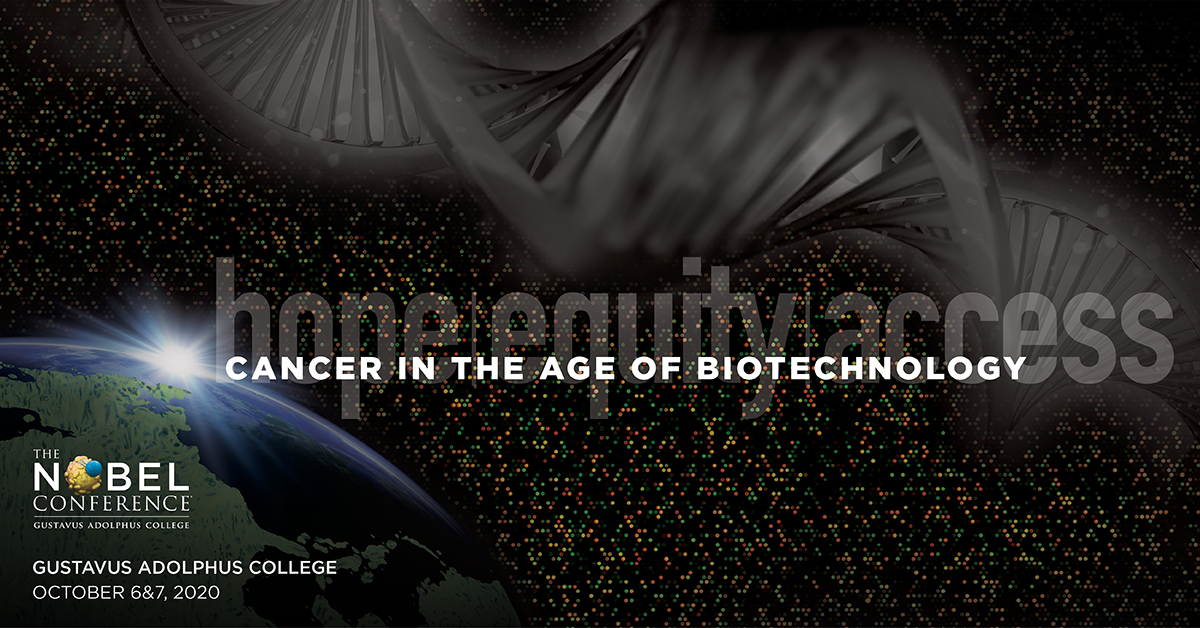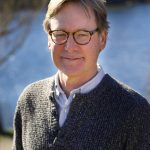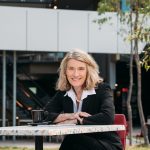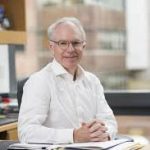The 56th annual Nobel Conference, Cancer in the Age of Biotechnology, will take place October 6-7, 2020. Typically held on campus in front of a live audience of nearly 5,000 attendees, the 2020 Nobel Conference will take place in a virtual format due to COVID-19.
“While it will, in some ways, be nothing like conferences of the past, the heartbeat of The Nobel Conference will remain the same,” Nobel Conference Director and Professor of Philosophy Lisa Heldke said. Nobel Conference 56 will explore the science of new cancer treatments, the structural and societal factors that will determine who has access to these life-saving treatments, and the therapies and practices that will enable people to live with cancer for the long term.
“Decades of basic science research in cancer biology and biotechnology have resulted in deeper understandings of both the mechanisms of cancer development and the potential for biomolecules to treat the disease. Cancer research in other fields such as sociology, psychology, and physiology has also improved the ability to treat patients—people—and not just tumors,” Conference co-chairs Laura Burrack (biology) and Dwight Stoll (chemistry) wrote in a welcome letter to virtual attendees. “On one hand, this research has allowed for the development of novel cancer therapies targeted to the individual’s disease and more effective at reducing cancer morbidity and mortality. On the other hand, efforts to manufacture, distribute, practice and prescribe these therapies at the scale needed to have a significant impact on public health have revealed shockingly high costs, socioeconomic and geographic barriers to high quality healthcare access, and inequities due to structural racism. The quandary with which these two factors present us is the focus of this year’s conference.”
The Nobel Conference will commence with a welcome at 10:30 a.m. CDT on Tuesday, October 6, followed by an opening lecture from Carl June, Richard W. Vague Professor in Immunotherapy at the University of Pennsylvania’s Abramson Cancer Center. At 12:45 p.m., Chanita Hughes-Halbert, AT&T Distinguished Endowed Chair in Cancer Equity and Dean of Assessment, Evaluation, and Quality Improvement at The Medical University of South Carolina, who will discuss her research on cancer health disparities and equitable approaches moving forward. The last lecture for Tuesday will be given at 2:45 p.m. by James Thomas, Executive Vice President, Global Head of Biotherapeutics, and President of U.S. Operations for Just-Evotec Biologics, who will talk about global access to biologic therapeutics.
Following Thomas’ lecture, a live panel discussion at 3:45 p.m. will feature all seven experts focusing on the issues covered in the first day’s presentations. Tuesday’s conference activities will conclude with a 5:30 p.m. artist talk by Alison Hiltner discussing her exhibit, The Now and After, that is currently on display in the College’s Schaefer Gallery, followed by the Nobel Concert at 7:30 p.m. featuring members of the Gustavus community and recent alumni.
Day two kicks off with a 9:30 a.m. session in which co-chairs Burrack and Stoll will answer questions submitted by the audience. At 10 a.m., Kathryn Schmitz of the Penn State Cancer Institute and Penn State Department of Public Health Sciences will discuss how precisely-prescribed exercise and nutrition can support the health of cancer patients. Suzanne Chambers, Dean of the Faculty of Health at the University of Technology Sydney, will speak at 11 a.m., offering a reflection on “The Care of the Patient,” a seminal article in the Journal of the American Medical Association from 1927. At 1:15 p.m. Charles Sawyers, Chair of Human Oncology and the Pathogenesis Program at Memorial Sloan Kettering Cancer Center, will discuss the development of Gleevec, an early targeted therapeutic cancer treatment. Following Sawyers’ lecture, Bissan Al-Lazikani, Head of Data Science at the Institute for Cancer Research in London, will discuss the impact “big data” and artificial intelligence are having on cancer treatment. Throughout the conference, there will be opportunities for virtual attendees to take part in discussion groups led by Gustavus faculty members.
A full suite of digital resources are available, including a new Nobel Conference podcast, short videos on the “basics” of cancer by Gustavus students, mini-lectures on the history of cancer by Helen King, Professor Emerita of Classical Studies at the Open University in England, cancer stories focusing on personal impact, yoga for cancer sessions, and cooking videos featuring recipes selected using American Cancer Society dietary guidance. Distance learners and lifelong learners alike are encouraged to take advantage of these offerings.
The College’s Hillstrom Museum of Art is also presenting two exhibits in conjunction with the Nobel Conference. Cancer Never Had Me: Views by the Artists features a juried gallery of 45 works submitted by artists who have been affected by cancer, while Artists Who Had Cancer: Works from the Hillstrom and Shogren-Meyer Collections highlights 32 works from early 20th century artists who died of cancer.
HOW TO PARTICIPATE
The 2020 Nobel Conference is free and open to all in a virtual format. The Nobel Conference will be livestreamed on the Nobel Conference website beginning on Tuesday, October 6 at 10:30 a.m. A full schedule is available online. Additional resources are available now.
The lectures will be available to watch in the public archive immediately.
ABOUT THE NOBEL CONFERENCE
 Following the dedication of the Alfred Nobel Hall of Science in 1963 at Gustavus, the Nobel Foundation granted approval for an annual science conference to be held at the College. For five decades, Gustavus has organized and hosted The Nobel Conference, which typically draws about 4,500 people to the college campus in Saint Peter, Minn. The conference links a general audience, including high school students and teachers, with the world’s foremost scholars and researchers in discussion centered on contemporary issues relating to the natural and social sciences. The Nobel Conference is the first ongoing educational conference of its kind in the United States. It is made possible through income generated by a Nobel Conference Endowment and the support of annual conference contributors.
Following the dedication of the Alfred Nobel Hall of Science in 1963 at Gustavus, the Nobel Foundation granted approval for an annual science conference to be held at the College. For five decades, Gustavus has organized and hosted The Nobel Conference, which typically draws about 4,500 people to the college campus in Saint Peter, Minn. The conference links a general audience, including high school students and teachers, with the world’s foremost scholars and researchers in discussion centered on contemporary issues relating to the natural and social sciences. The Nobel Conference is the first ongoing educational conference of its kind in the United States. It is made possible through income generated by a Nobel Conference Endowment and the support of annual conference contributors.








Leave a Reply